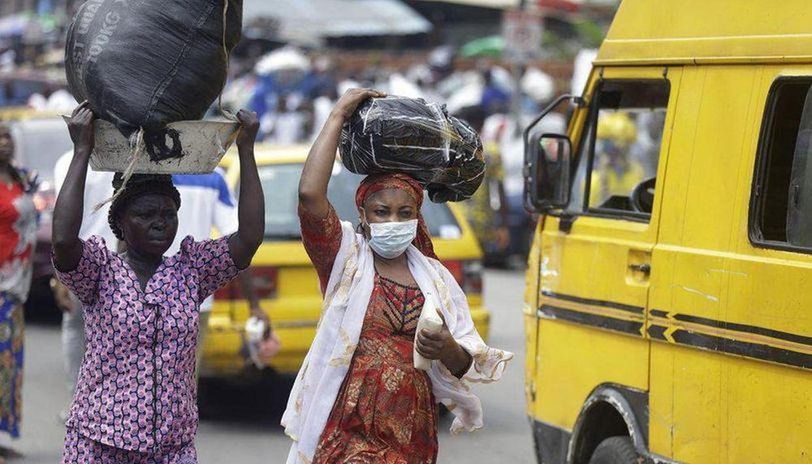
Africans and indeed Nigerians are steeped in cultural and societal norms. As can be seen from the deep meanings we attach to names and the aura they bring, COVID-19 is not an exception. COVID-19 evokes fear, helplessness and mistrust of government.
The health messaging on stigmatization is grossly inadequate. Whether we’re hearing about the disease from the television networks, radio, newspapers or other news media platforms, the information we get about the contagion is always the same. That it kills, the confirmed cases are increasing, it’s not going away soon, people with positive results must be isolated. They should also consider how these reports are interpreted in people’s lived realities. They should harness their platforms to advocate for non-stigmatization of the disease.
We do not hear much about the disease stigmatization which is actually one of the factors responsible for the increase in numbers of cases because suspected cases do not reveal themselves to the health authorities. Our media houses have achieved international standards in news reporting but a lot of work needs to be done in supporting efforts aimed at fighting coronavirus stigmatization. On a daily basis, they should devote a considerable portion of their content to coronavirus stigmatization and how to overcome it.
Our sensationalism in COVID-19 news reporting should be sensitive to our cultural and social norms while communicating health risks. They should let Nigerians see more of the bright sides of COVID-19. And there are bright spots; cases who recovered, acts of kindness to survivors and health care workers. Even for those who lost loved ones, acts of kindness shown to them by health care workers during the process should be reported after getting permissions from the family. News about successful entrepreneurships that started during the COVID-19 era should be encouraged. We should try to balance our news reporting and create an aura that is not always doom and gloom around the coronavirus.
To be diagnosed with the disease should not be seen as a death sentence and to recover from the disease should not turn the survivor into a pariah from societal stigmatization. In some countries, stigmatized survivors have killed themselves. Some landlords have refused to rent to healthcare workers and some drivers have refused them from boarding their vehicles. In India, some supermarkets have refused to sell to them.
France and Spain were once epicenters of the disease in Europe where each country recorded daily deaths in the thousands during the tumultuous days of the epidemic. These countries gave a public memorial in commemoration of all the lives lost through the pandemic. This gesture gave the families left behind some form of closure. Nigeria can learn from this and give some sort of closure to families who have lost loved ones through the novel coronavirus and have not been able to give a befitting burial. Further, survivors and family members need counselling. COVID-19 healthcare workers who are often stigmatized also need counselling.
Communication strategies should be developed between patients in isolation and their family members. Despite the economic crunch, those in isolation that earn below a certain minimum should be assisted financially. It is important to help daily wage earners who are in isolation because their earning capacity is reduced. For such people, it is this fear of reduced or zero income while in isolation that prevents them from presenting for testing.
Faith-based organizations should educate their followers through different media platforms against the ills of stigmatization. They should encourage seamless transition of survivors back into their communities. There should be collaboration between faith based organisations and members of the communities.
The fear of getting a new infection that has no cure and a healthcare system that seems incapable of stopping the spread of the disease is a major concern for most people. Another fear is caused by lack of trust in the government. The government must work to regain confidence of her people. The mismanagement of COVID-19 funds under the care of the Niger Delta Development Commission (NDDC) does not gain the public trust.
Health communication networks between the government and the people should be strengthened. Our culture places a lot of emphasis on names and the aura they bring. Our people see coming in contact with someone who has or has had the disease as being in the aural sphere of the disease. Just like we believe that the names we give our children carry an aura around them, avoidance and stigmatization of people who have been in contact with COVID-19 patients is seen as an act of prevention against the aura of “evil” COVID-19 befalling them.
Survivors, both elitist and non-elitist, volunteers, religious leaders, community leaders, local, state and federal actors need to be actively engaged in fighting COVID-19 stigmatization. It is important that we reduce the level of stigmatization before a standard cure or vaccine is found because if the cure becomes available without reducing stigmatization, the infection will still spread. If we observe these strategies, the second enemy called stigmatization will reduce. People will be ready to come out for testing and ultimately, there’ll be a reduction in the number of cases from enemy number one; the novel coronavirus.
Concluded.
Obilade, PhD a physician, associate professor of public health work, wrote from Abuja.






